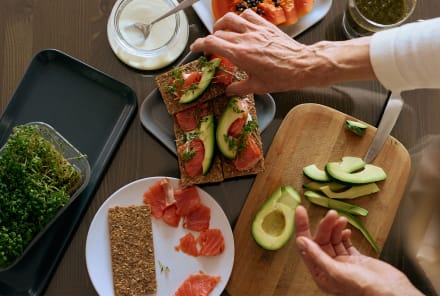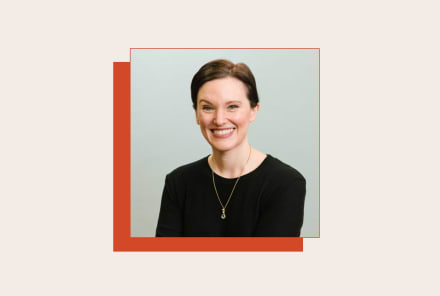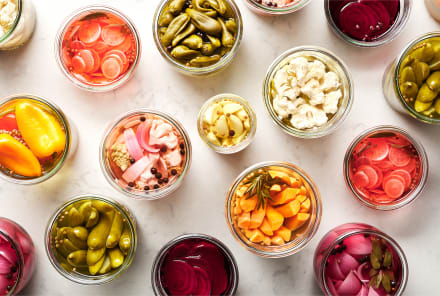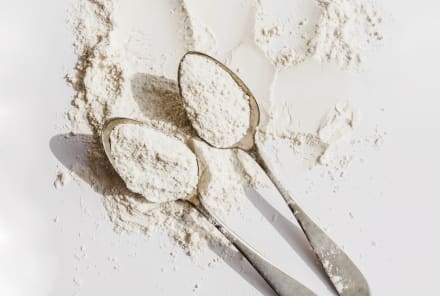Advertisement
Is The Dr. Sebi Diet Healthy? A Functional Medicine Perspective


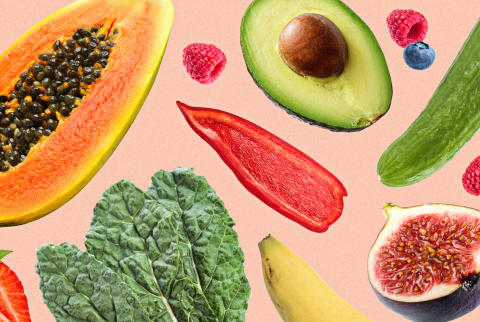
The long and complicated history of the Dr. Sebi diet added another chapter when it hit No. 2 on Google's 2019 search trends for diets.
Its traffic peaked in early April of 2019 following the death of rapper Nipsey Hussle, who had previously reported that he was working on a documentary about Dr. Sebi. Some people linked Hussle's work on the documentary to his death, saying it "wasn't a coincidence."
In the interview about the documentary, Hussle himself raised questions about the circumstances of Dr. Sebi's death. It seems that the diet wasn't necessarily trending in searches for nutrition application but rather as a result of curiosity about the related conspiracy theories.
What exactly is the Dr. Sebi diet?
The plant-based diet is a form of alkaline diet, which was designed to purportedly help cells repair themselves through the combination of a restricted diet and supplements.
The designer is "Dr." Sebi, whose real name was Alfredo Darrington Bowman, was born in 1933 in Honduras. He was not a doctor, medical or otherwise, nor licensed healthcare practitioner of any kind (though his site calls him a "pathologist, herbalist, biochemist, and naturalist"). Entangled in a variety of civil and criminal litigation through his life, Alfredo was arrested for practicing medicine without a license. Bowman passed in August of 2016.
During his life, his diet had a number of celebrity fans, like Michael Jackson, but also was surrounded with controversy. He was known to deny that HIV causes AIDS and was in fact sued by New York state after claiming he had "cured AIDS" in 1993. He was told to stop making medical claims about his diet's benefits.
The diet prescribes a strict form of veganism and is based on the notion that all diseases have to do with a localized failure by the body's mucus membranes. Bowman proposed that by creating an alkaline environment, one can eliminate diseases.
As part of Bowman’s diet, there’s a"Nutritional Guide," which provides a list of foods you're allowed to eat (it's specific), along with some other guidelines.
His diet also advises taking Dr. Sebi "Cell Food" supplements. The program,for which there are gendered options, costs between $750 and $1,500.
Rules of the diet (per Bowman):
1. If the food isn't in his "Nutritional Guide," it is not recommended.
2. Drink one gallon of natural spring water per day.
3. Any Dr. Sebi products are to be taken an hour before "pharmaceuticals."
4. All Dr. Sebi products can be taken together without interaction.
5. Strict adherence to the "Nutritional Guide" (complete with supplemental products) gives the best results for "reversing disease."
6. No animal products, hybrid foods, canned fruits, seedless fruits, or alcohol may be consumed.
7. According to Sebi, using the microwave will "kill your food," so avoid using it.
What does it mean to alkalize the body?
An alkaline diet is based on the premise of controlling your body's pH with the foods you eat. Because the foods our body uses leave behind metabolic waste, the idea is that the waste can possess a pH varying from alkaline to acidic.
The human body has different pH levels in different areas to support specific physiological functions, with organs like the stomach being more acidic while blood is more alkaline. The homeostasis of pH in various organs and fluids is tightly regulated.
Through complex excretion and reabsorption mechanisms, our body has built-in acid-base balance via the lungs, kidneys, and buffer systems. One of the bodily products that is directly affected by the food and fluids we consume is urine. This is an example of a kidney-controlled mechanism for managing pH in the blood.
Do alkaline diets work?
The broader group of "alkaline diets" is based on the issue of metabolic waste, and the Dr. Sebi diet is one of many. The components of these diets are generally healthy enough in that they encourage eating more healthy plant-based foods, which would benefit most everyone. An alkaline diet typically criticizes or removes meats, seafood, eggs, dairy, sugar, processed foods, and wheat.
While these dietary changes would certainly yield health benefits for many (via sugar and calorie reduction, plus improved fiber intake and fruit and vegetable intake), the idea that diet patterns or components can materially influence our robust, built-in acid-base balance is unscientific.
There is no research behind alkalinizing the body, and science does not support the claims made by Bowman or similar alkaline regimens. Many studies on alkaline diets have been reviewed and meta-analyzed, and the results are in: Neither the alkaline diet nor its related “acid-ash hypothesis” have been shown to prevent or mitigate diseases. This lack of effect includes bone health and osteoporosis1, cancer2, and glucose and insulin responses3, to name a few.
The bottom line on the "Dr." Sebi diet.
While it makes big claims, the diet is not proven. It may result in similar benefits to an alternate plant-based diet, for which the benefits are more well researched4, but the strict diet plan does seem to lack protein sources.
When it comes to alkalinizing, Wendie Trubow, M.D., told mbg, "The claims, without research, should not be relied upon."
If you're thinking about trying a plant-based diet, there are plenty of benefits to look forward to. Here are some tips for starting your plant-based journey.
And if you're curious, here's the complete list of foods allowed on the Dr. Sebi diet:
- Amaranth greens
- Avocado
- Bell Peppers
- Chayote (a Mexican squash)
- Cucumber
- Dandelion greens
- Garbanzo beans
- Izote (Cactus flowers/leaves)
- Kale
- Lettuce (but not iceberg)
- Mushrooms (but not shiitake)
- Nopales (Mexican cactus)
- Okra
- Olives
- Onions
- Sea vegetables
- Squash
- Tomatoes (only cherry or plum varieties)
- Tomatillos
- Turnip greens
- Zucchini
- Watercress
- Purslane (verdolaga)
- Wild arugula
- Apples
- Bananas
- Berries (but not cranberries)
- Elderberries
- Cantaloupe
- Cherries
- Currants
- Dates
- Figs
- Grapes (if seeded)
- Limes
- Mango
- Melons (if seeded)
- Orange (Seville or sour is best)
- Papayas
- Peaches
- Pears
- Plums
- Prickly pear (cactus fruit)
- Prunes
- Raisins (if seeded)
- Young coconuts
- Soursops (if you can find them)
- Tamarind
- Amaranth
- Fonio
- Kamut
- Quinoa
- Rye
- Spelt
- Tef
- Wild rice
- Olive oil (only uncooked)
- Coconut oil (only uncooked)
- Grapeseed oil
- Sesame oil
- Hempseed oil
- Avocado oil
- Hemp seeds
- Raw sesame seeds
- Raw tahini
- Walnuts
- Brazil nuts
- Basil
- Bay leaf
- Cloves
- Dill
- Savory
- Sweet basil
- Tarragon
- Thyme
- Achiote
- Cayenne
- Onion powder
- Habanero
- Sage
- Pure sea salt
- Powdered seaweeds
- Pure agave syrup
- Date sugar
- Burdock
- Chamomile
- Elderberry
- Fennel
- Ginger
- Raspberry
- Tila
Watch Next
Enjoy some of our favorite clips from classes
Enjoy some of our favorite clips from classes
What Is Meditation?
Mindfulness/Spirituality | Light Watkins
Box Breathing
Mindfulness/Spirituality | Gwen Dittmar
What Breathwork Can Address
Mindfulness/Spirituality | Gwen Dittmar
The 8 Limbs of Yoga - What is Asana?
Yoga | Caley Alyssa
Two Standing Postures to Open Up Tight Hips
Yoga | Caley Alyssa
How Plants Can Optimize Athletic Performance
Nutrition | Rich Roll
What to Eat Before a Workout
Nutrition | Rich Roll
How Ayurveda Helps Us Navigate Modern Life
Nutrition | Sahara Rose
Messages About Love & Relationships
Love & Relationships | Esther Perel
Love Languages
Love & Relationships | Esther Perel



